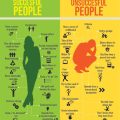
The Great Reimagining: Redefining Work-Life Balance in a Post-Pandemic World
In an era where technology has transformed the way we live, work, and connect, the importance of work-life balance has never been more critical. As industries and communities continue to adapt to new challenges, especially during times like the COVID-19 pandemic, the need for employees to maintain mental health and productivity becomes even more urgent. This is where startups and entrepreneurs come into play—they are at the forefront of finding innovative solutions to address these emerging challenges.
Historical Context: The Rise of Work-Life Balance
Throughout history, the balance between work and personal life has been a cornerstone of human well-being. However, with the advent of new technologies and societal changes, this traditional model has evolved significantly. For instance, in the 19th century, the establishment of professional societies like the American Psychological Association (APA) underscored the importance of mental health alongside professional development. Similarly, the rise of companies like Google, Apple, and Microsoft demonstrated how technology could support and enhance work-life balance.
The pandemic further accelerated this evolution. With remote work becoming increasingly popular, employees faced unprecedented challenges related to physical activity, stress management, and productivity in confined spaces. This period also highlighted the need for mental health resources that catered not just to traditional workplace cultures but those of today’s digital nomads.
The Reimagining in the Post-Pandemic
In recent years, work-life balance has become a focal point in startup discussions and market trends. With remote work becoming the norm for many industries, companies are realizing the necessity of rethinking how they manage their employees’ lives outside the office. This shift is not just about flexibility—it’s about reconnecting with the values that made life meaningful before the pandemic.
One of the key challenges in this transformation is addressing the concerns raised by employers and employees alike. While technology has provided tools to improve mental health, such as mindfulness apps and stress reduction techniques, many businesses still face stigma or lack access to these resources. This gap highlights a need for cultural change that fosters an inclusive environment where employee well-being is prioritized.
Successful Initiatives: Redefining Work-Life Balance
Several startups and entrepreneurs have successfully reimagined work-life balance by implementing innovative strategies. For example, Buffer, a mental health app, has been instrumental in helping remote workers manage anxiety and burnout. By providing access to stress reduction tools and social support, Buffer bridges the gap between professional and personal life.
LinkedIn, another pioneer of online communication platforms, has also embraced digital tools to enhance workplace bonding. Its features like virtual networking sessions have transformed how employees maintain connections outside of the office while working remotely. These efforts underscore the importance of collaboration in a world where remote work is becoming more common.
The Importance of Trust and Communication
Building trust with employees is critical for fostering an environment that supports work-life balance. Many companies have been through “Why Work” conversations, inviting employees to reflect on their motivations for working. By understanding and respecting these feelings, organizations can create a space where employees feel safe and valued.
Additionally, the role of technology in managing work-life balance has changed dramatically. From flexible schedules to remote communication tools, the availability of solutions tailored to modern work practices has allowed companies to better accommodate different lifestyles. Employees now have access to resources that help them manage stress while maintaining productivity, which is essential for long-term success.
Case Studies: Real-World Examples
One notable example of successful reimagining is the shift in how Apple has balanced productivity and mental health. The company has integrated mindfulness tools into its workspaces, encouraging employees to practice meditation before starting tasks. This approach not only supports physical health but also helps reduce stress levels, leading to increased focus and efficiency.
Similarly, the rise of home-based businesses has been transformative for work-life balance. Many small businesses are now able to access mental health resources at their own pace, which fosters a sense of ownership and accountability among employees. This shift has made it easier for entrepreneurs to implement innovative solutions that cater to diverse cultures and needs.
Emerging Trends: The Future of Work-Life Balance
As we look ahead, the future of work-life balance will undoubtedly be shaped by emerging technologies and changing societal norms. For instance, hybrid work models are becoming more popular among remote workers, offering both flexibility and opportunities for deeper connections with colleagues. Companies that embrace these strategies can create environments where employees feel valued while working from anywhere.
Another trend to watch is the rise of mindfulness and stress reduction tools in the workplace. As awareness grows about mental health, companies will likely see a greater emphasis on incorporating such practices into their work cultures. These efforts not only improve productivity but also contribute to overall well-being.
Conclusion: The Future of Work-Life Balance
In conclusion, the Great Reimagining is transforming the way we approach work-life balance in the modern workplace. By leveraging technology and fostering a culture of mental health awareness, startups and entrepreneurs are setting the stage for a future where employees thrive both professionally and personally. As society continues to evolve, embracing new tools and strategies will ensure that work-life balance remains a priority for everyone.
In an era where change is swift and impactful, it is crucial for entrepreneurs and business leaders to stay vigilant. By staying ahead of trends and continuously learning about innovative solutions to improve work-life balance, they can help shape a workforce that values both productivity and mental health—where employees are confident in their ability to succeed in whatever challenges lie ahead.















